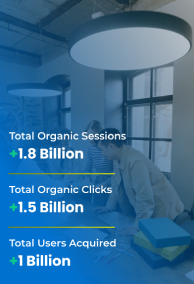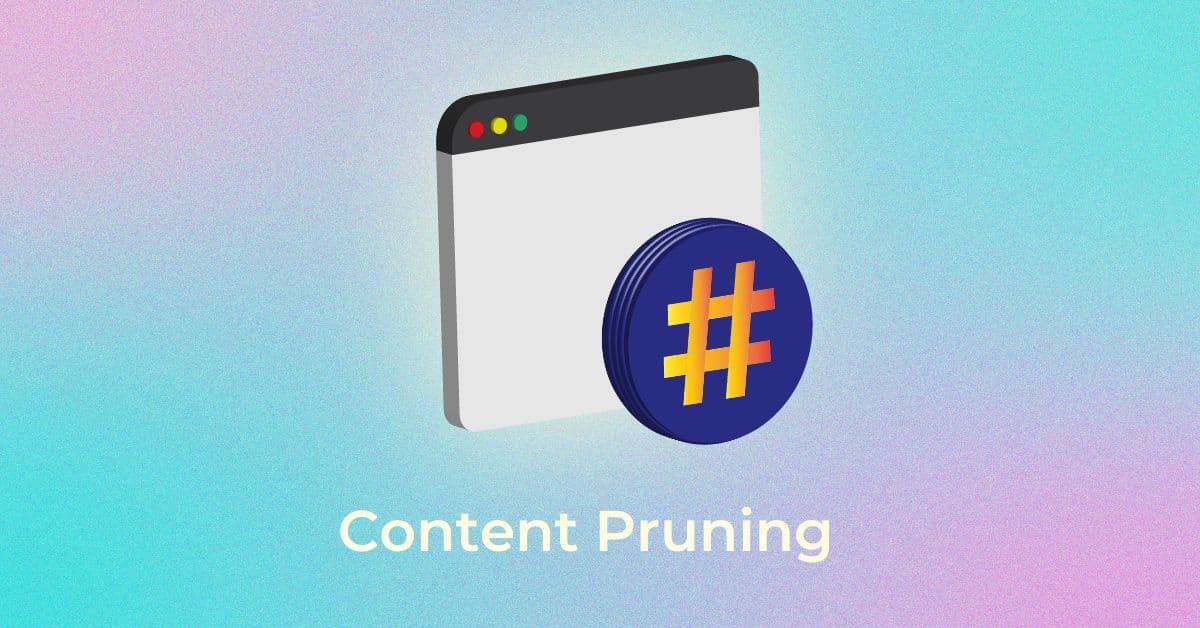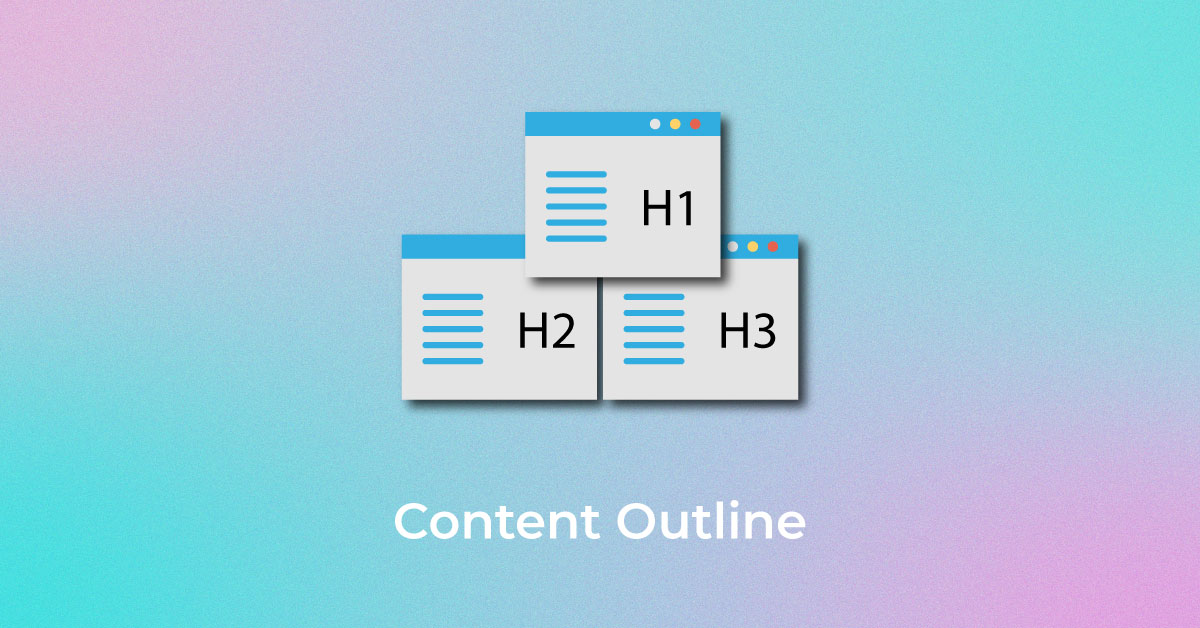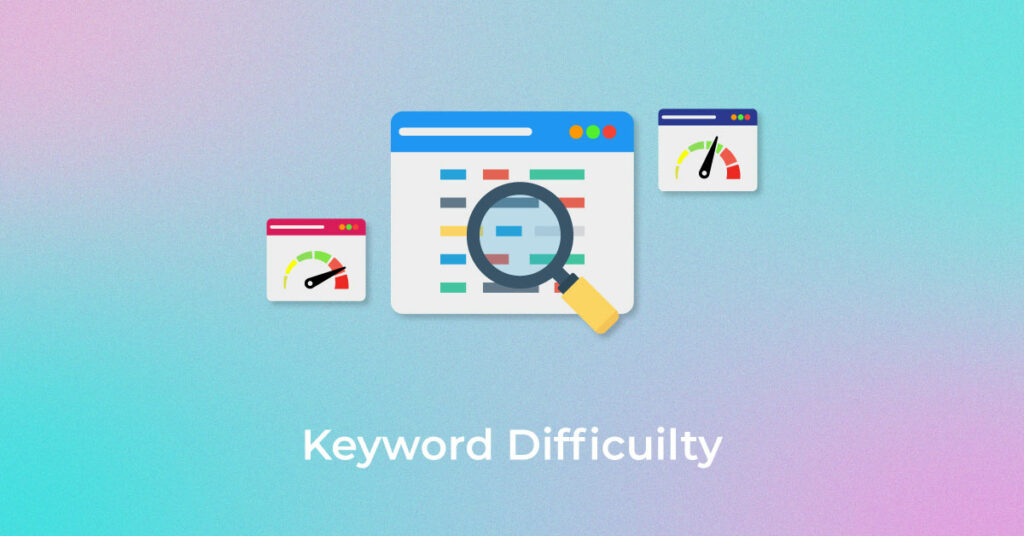
Witness an Increase in your ROI
Unlock higher rankings, quality traffic, and amplified conversions through tailored award-winning SEO strategies.
Understanding keyword difficulty is an integral part of SEO and the content strategy system. From its search frequency to general popularity, a keyword difficulty checker can help you evaluate a phrase that can boost your business’ website reach.
A keyword’s volume and difficulty levels play pivotal roles in helping you reach your digital marketing goals. A digital marketplace is full of competition and the only way of rising to the pinnacle of success is to understand how the online ranking system works. Let us delve into the intricacies of keyword difficulty and its role in SEO research.
What is Keyword Difficulty?
As a budding content creator, you might find yourself asking, “what is keyword difficulty?” Also known as keyword competition, keyword difficulty is an SEO metric known to estimate the difficulty of ranking a keyword on organic search results.
There are many factors that determine a keyword’s difficulty levels, such as content quality, domain authority, and more.
Content Difficulty in SEO
Keywords integrated in the content are part of the website’s search engine optimization (SEO). When it comes to keyword’s difficulty in SEO, it’s the accurate measurement of the backlinks’ quality and quantity on the top 10 websites in the SERPs. You can determine the popularity and authority of these websites based on their backlinks.
Many companies take the help of SEO keyword tools to research the SERPs by peeping into their domain authorities and page authorities. In simple words, they are the domain and URL ratings. Well-known SEO companies utilize these factors to gauge competitors’ website equity. Therefore, there are bound to be some variations within the results and also the pages’ strength as the SERPs.
You can assess a keyword’s difficulty to find out the competitiveness of the top 10 pages of any search engine platform. Through this, you can receive a rough estimate of how complex or challenging a keyword will be to rank your post over others who are already using it.
How is Keyword Difficulty Calculated?
If you wish to research the competitiveness of a keyword, it is possible by assessing its backlink profile. There are various ways to measure your competition’s authority by utilizing a keyword difficulty tool. You can check their profile strength metric that helps estimate overall quality.
It is crucial to remember that each of these tools provides a different result from the other. There are sure-shot ways of calculating keyword difficulty levels and the following steps can help you do just that.
Step 1: Installing MozBar
MozBar is a free browser toolbar that can help you assess keyword difficulty in no time. All you have to do is install it on your Chrome browser. For this, you need to visit their website and click on the “Download MozBar Free” yellow button in the center.
Next, try to search for a website using a particular keyword. Whenever you do this, you can check the details of the first ten pages (SERPs) on MozBar. You can use MozBar to mark a page’s domain authority, page authority, trust flow, and citation flow.
From here, you can look into the quality and quantity of the backlinks present in the 1st SERP to determine your biggest competition.
Step 2: Checking the Site’s Authority
A website’s authority helps it rank higher than the rest of Google’s organic search results. Other than a company’s online brand presence and domain, its page should be able to rank with proper SEO tactics that help it to reach potential clicks.
MozBar’s page authority can help determine a page’s authority. Check the MozBar for a PA (Page Authority) number to determine its rank. Medium or even high volume keywords can push SERPs to gain boosted PA results. Keep in mind that these are high-ranking pages that are challenging to surpass for any online start-up business.
Instead, keep your eyes peeled for lower-PA pages. These pose little to no competition and are easy for your page to surpass. All these steps are possible when you have a keyword in mind and focus on checking its difficulty level in helping you rank.
Step 3: Assess the Referring Domains
More backlinks on a page mean a higher rank. The pages you find on the top of search history are ones with multiple backlinks to successful websites that help back claims. There is always a guarantee of ranking high if you place more backlinks with suitable and proven cases.
Keep in mind that most of these tools analyze the same keyword and can have different results and data. It is best to steer clear of confusion and understand the logic behind those numbers.
Of course, for more clarified details, you can turn to Ahrefs or MozBar, two of the most convenient SEO tools in the market. They present you with near-accurate evaluations of your target keyword straight from the SERPs.
If you own a MozBar Pro account, you can check a page’s number of referring domains. You can also use Ahrefs for evaluating referral domains that backlink to one particular page.
Step 4: Check the Page’s Domain Authority
If your backlinks are from higher-ranking websites, Google can help rank your page within the SERPs. High-ranking pages like Wikipedia, Youtube, Healthline, and Amazon can help boost a page’s ranking due to their domain authority.
While most of these rankings are due to the pages’ content quality, they are immensely helpful in boosting your site’s chances of reaching the top organic search result status.
Sometimes, these pages are your biggest competitions, which when cleverly utilized, can help you surpass them. To know if a page is worthy of backlinks, check their domain, and their page authority. If their DA and their PA are high, the competition is higher. There are some top-ranking pages with both lower DA and PA. These utilize lower-ranked keywords that can also come in handy for you.
Keeping an eye out for competitors that can help you rank is always helpful for start-up content creators and digital marketing agencies.
Step 5: Check the Spammy Backlinks
Spammy backlinks are a bane to SEO analysis for keyword research. You might find high-ranking websites with backlinks to spammy and misleading websites. Not to forget, these are websites that lose their top 10 positions in no time.
If you find keywords that seem competitive but feel misleading, make sure to conduct some research. Check the link’s profile to look out for ingenuine backlinks. Most of these links have the following features of black hat SEO strategies such as:
- Spam comments on the blog posts
- Article directories
- Web directories
- Blog networks
Adding keyword-optimized external links on anchor texts is also a sure-shot way of detecting black-hat SEO strategies.
Why do I need to care about Keyword Difficulty?
As a blogger, you might have well-optimized content written professionally. However, as days pass by, you might see that these posts are not ranking on Google’s organic search results.
If there is one keyword, chances are that more companies are using it to rank their pages, making it more difficult for you to use it as an anchor. Therefore, it is best to take keyword difficulty into account when initiating SEO research as it can aid in:
- Finding keywords most suitable to your niche
- Gaining knowledge on alternative keywords that can help your page rank higher
- Using focus keywords that help rank up page results with medium to low authority
Knowing about keyword difficulty can help ease the usage of phrases that add more usefulness to a page.
How Can I Use Keyword Difficulty in our SEO Strategy?
Here are 4 steps to use keyword difficulty for SEO strategies:
-
Three-Factor Assessment
When you’re researching for relevant keywords, you need to factor in the importance of keyword difficulty. Three factors can help a keyword stand out from your competitors’ usage. They are:
- Keyword popularity
- Its SEO difficulty for ranking
- Keyword relevancy
A keyword needs to be popular enough to have a high search volume. Next, check that its SEO difficulty is not too steep for your page. If the page is for a start-up’s blog or website, it needs to be well-optimized before taking on competitors. You also need to keep an eye on the keyword’s relevancy. Is its purpose to draw more customers or to rank above the competition? Check its intent before adding it to your content.
If the keyword’s difficulty and search relevancy is low, it will not amount to any traffic. The key here is to balance the keyword’s purpose before adding it to your SEO strategy.
-
Assess SERP Results
While numbers can help conclude an experiment, it is never an absolute for keyword strategies. You can use it to have a peek into your competition and make sure to use it for analyzing your SERP. Check out the websites on the SERP results to see why their metrics rank so well.
There are many things to learn from this nifty step, such as:
- The competitor’s keyword’s search intent (was it an informative article or a product review?)
- The type of content that ranks well for the keyword
- The quality of research that goes into the overall content
SEO formatting, keyword relevancy, and search volume play pivotal roles in helping a website rank high. And researching keyword difficulty can help analyze these factors.
-
Understand High Difficulty Keywords
Do not be repelled by a keyword with high difficulty. A difficulty metric’s responsibility is to give you a general idea of your competition, which keywords they use for their position, and how to upstage them.
If you have a highly competitive keyword that fits impeccably in your content strategy, here is how you can use it to rank within your competitions:
- Content Quality: If your content portrays outstanding research, highly expert writing, and overall high quality, it can outrank your competition even with a high-difficulty keyword.
- Backlinks: If your content has relevant backlinks from high domain authority websites, it can help you in ranking better in the high difficulty keywords.
- The Topic’s Relevance: Keep your content relevant with well-researched backlinks from authoritative websites.
-
Use One Tool for All Comparisons
You can find multiple keyword research tools online. Each will provide a varied result to your search and can be confusing, to begin with. Every tool has its unique backlink database, strategies, and ways of calculating difficulty. Instead, stick to one research tool for more efficient assessment.
Keyword Difficulty in PPC
Keyword difficulty in PPC is assigned ranks such as low, medium, and high. These ranks reflect the keyword’s competitiveness levels with other relevant keywords for a topic. PPC or Pay-Per-Click keywords follow the same pattern as SEO keywords. This means that they follow and maintain a high volume: low-frequency ratio. High-volume keywords or phrases can help attract traffic at affordable rates (due to lower demand).
When you are bidding on a keyword, you are competing for it with other relevant pages. Here, a keyword’s volume and its intent on the page play pivotal roles. It also helps assess the keyword difficulty score. Short, one-worded keywords have high volume and higher competition. While they guarantee a smooth inflow of traffic to your page, they require more expensive bids and quality marketing campaigns.
Keyword Difficulty, Not So Difficult Anymore
The takeaway here is that keyword difficulty goes hand-in-hand with its search volume and intent to raise a page’s ranking online. It is the last piece of a puzzle that helps solve all issues for a website to rank among its competitors. Be it paid or for organic search, a keyword’s role is irreplaceable. It is the pivotal metric to assess your content’s current authority and ranking, and the tool to push it up among the top 10 SERPs.
All you need to know is how to utilize keyword difficulty seamlessly within your marketing campaigns, business goals, overall budgets, and competitions. When you balance SEO keyword strategies with brand promotion, the digital world is your oyster.
Popular Searches
Private Blog Networks |Most Subscribed Youtube Channels |Permalink|Backlink Audit | People Also Ask |What Are Backlinks | Hreflang | Submit Url To Google | Local Seo Ranking Factors |Introduction To Schema Markup |Best Blogging Platforms |Reciprocal Links |Artificial Intelligence In Digital Marketing | Subdomain Vs Subfolder | Content Syndication |Google Disavow Links |What Are Google Alerts |Lsi Keywords |Eat Seo Guide |Website Navigation |Zero Search Volume Keywords |Dwell Time|Heatmap Tools|Google Hummingbird Update|Referral Traffic|What Is Digital Marketing And Its Types |How To Do Seo|Canonical Tags|What Is On Page Seo|Off Page Techniques In Seo| Link Building Companies |Image Optimization Seo |Seo Company In Boston |Dallas Seo Services|Seo Service In Houston
How useful was this post?
0 / 5. 0











2 thoughts on “Keyword Difficulty – All You Need to Know”
Thank you for sharing such beautiful information with us.
We are glad that you liked our post. Check out our latest posts for more updates.